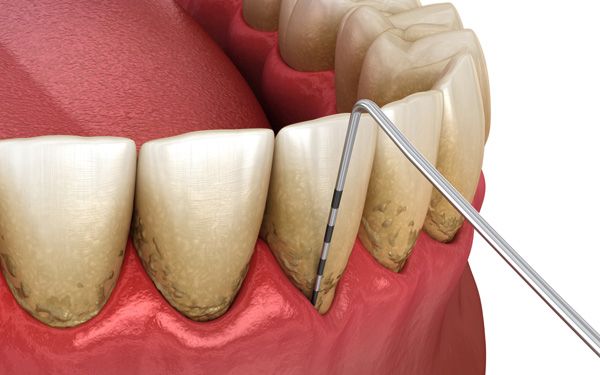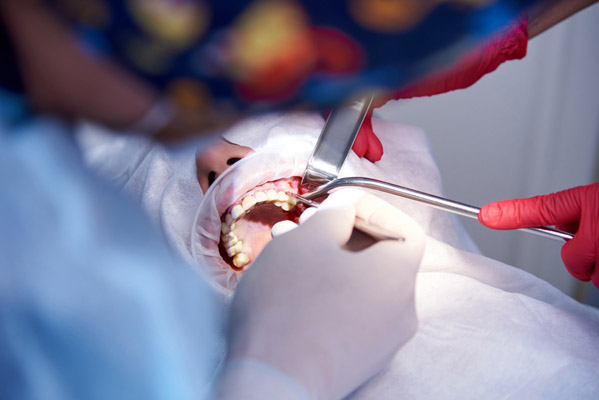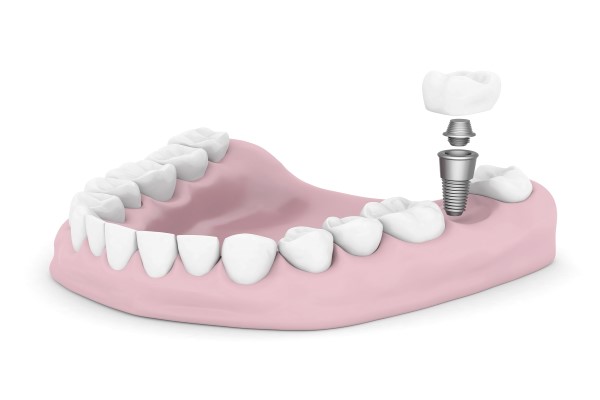Gum Recession Treatment From a Periodontist

When we go to the dentist or periodontist, one of the last things that we expect to hear is that we need gum recession treatment. However, gum recession happens to many people for many reasons. When it does happen, it is important to get it treated properly as soon as possible to avoid further damage. Thankfully, even if you are told that you need gum recession treatment, there are a few things your dentist can do to fix the damage. The best thing to do is listen to your dentist and get treated as quickly as possible.
Causes of gum recession
Here are some common causes of gum recession so you know when it is a good idea to see your dentist about treatment.
Injury to the mouth
One of the most common ways that gums can recede is when an injury to the gums occurs. This can be caused by accidents, such as hitting your face on a hard surface, sharp objects, or other trauma. You may need other treatments if an injury causes gum recession, so you may want to head to an emergency dentist to get treated.
Tooth eruption
Though less common, it is possible to experience gum recession if a tooth erupts through the gum improperly. Teeth can sometimes erupt only partially through the gum line. Other times they may erupt awkwardly, such as at an angle or sideways. When this happens, it can not only damage the gums, but they may start to recede at the eruption spot.
Gum disease
Perhaps the most common of all reasons for gum recession is advanced gum disease. Gum disease in its early stages is relatively easy to treat and keep managed, but once it has advanced to a more serious stage, not only is it more difficult to treat, it can cause many more problems, one of which being gum recession.
How will they treat the gum recession?
If your gums are receding due to gum damage from an injury, they may need surgery to repair that area of the gumline. If it is due to a tooth being out of place, it will need to be removed before the gum is repaired. If it is caused by advanced gum disease, the dentist will first treat the gum disease and survey the extent of the damage. From there, they will perform what is known as a gum graft, taking skin tissue from elsewhere in the mouth and placing it into the gums to force the body to regrow new gum tissue.
Your dentist will explain the procedure needed to fix your gums before they perform it, so there is no need to worry about being unable to fix your smile.
Understanding gum recession
As you may have realized, gum recession can be caused by many problems. When your gums recede, they can cause you to lose teeth, get an infection, or have other dental health problems. Gum recession treatment may involve surgery, correcting the issue that caused the gum recession, or even a gum graft to replace missing tissue, but it is always a good idea to listen to your dentist and get the treatment they suggest.
Request an appointment here: https://www.torreyhillsperio.com or call Torrey Hills Periodontal Group at (858) 925-1188 for an appointment in our San Diego office.
Check out what others are saying about our services on Yelp: Read our Yelp reviews.
Recent Posts
An oral surgeon might recommend the sinus lift procedure if your jawbone needs to be built up so it can hold dental implants. Also known as a sinus bone graft, the treatment is used to build bone tissues in the upper jaw. Oral surgeons or periodontists typically perform the procedure. Patients need to be fully…
Many patients with missing teeth find themselves looking at implants as a solution. dental implants have become a popular tooth replacement option in recent years that offers numerous benefits for a patient's oral health. Different types of prostheses are used with implants for different severities of tooth loss.Implants are nowadays one of the most common…
A missing tooth must get a tooth replacement as soon as possible. An untreated dental gap can contribute to many dental issues. That is why a dental replacement is important. Here are the details on how a tooth replacement can improve your smile.An oral surgeon understands how tooth loss can affect a patient. A tooth…
Undergoing oral surgery can feel overwhelming, but proper post-operative care is crucial to ensure a smooth recovery. Whether you have had wisdom teeth removed, dental implants placed, or another procedure, following the right recovery steps can help minimize discomfort and prevent complications.First and foremost, the oral surgeon will provide detailed post-operative care instructions specific to…


